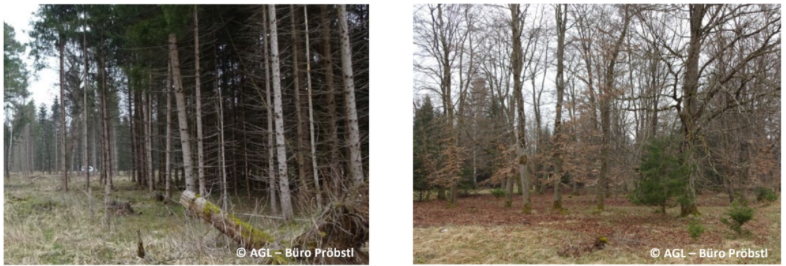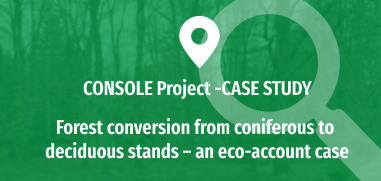Summary
The main focus of this initiative is to increase the percentage of deciduous trees through reforestation, forest restructuring and a targeted promotion of native trees in view of enhanced species and habitat protection. Ecological forest conversion takes place in a damaged coniferous forest of 252 hectares in the municipality Krailling in Bavaria. A mainly subterranean industrial use is combined with the creation, upgrading and enlargement of important habitats for wild plants and animals. Thanks to the recognition of the enhancement activities on approximately 100 hectares as private eco account scheme, the forest conversion is eligible as anticipated offsetting measure. An entry into the land register at the moment when developers make use of the already implemented eco-accounts measures to offset impacts arising from their projects secures the long-term preservation of the forest. The creation of an oak and hornbeam forest associated with wild fruit is complemented by the creation of forest aisles and nutrient-poor grassland in-between the forest pieces.
Objectives
- Biodiversity protection in the long run through:
- development of a private eco-account in southern Germany that is by its surface one of the largest ones;
- long-term preservation of a mosaic of forest pieces and nutrient-poor forest aisles;
- compatibility of industrial use and high ecological value in one area.
Public Goods




Problem description
The hurricane “Niklas” caused severe damages in the forest on 31st March 2015. Bark beetles damaged the coniferous trees further. This was taken as an opportunity to schedule a large- scale forest conversion. No public funds are available as the forest is declared as a special area due to the industrial use with tank storage facilities in the underground. The idea to create an eco-account was born to enable the forest conversion in direction of the natural forest cover.
